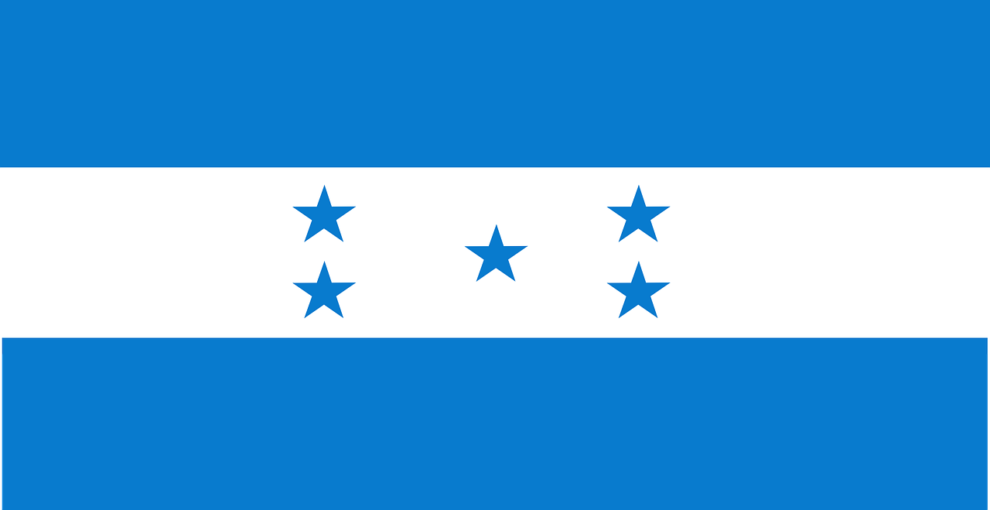Honduras will establish diplomatic relations with China, President Xiomara Castro said Tuesday, a move that would result in the severing of longstanding official ties with Taiwan.
Castro wrote on Twitter that she had instructed Foreign Minister Eduardo Reina “to undertake the opening of official relations with the People’s Republic of China.”
The switch — which Castro pledged to make while on the campaign trail — comes weeks after her government announced it was negotiating with China to build a hydroelectric dam.
Under Beijing’s “One China” principle, no country may maintain official diplomatic relations with both China and Taiwan.
Beijing said it “welcomed” the decision, with foreign ministry spokesman Wang Wenbin telling journalists: “On the basis of the One-China principle, China is willing to develop friendly and cooperative relations with Honduras and other countries in the world.”
Honduras is one of only 14 countries that officially recognize Taiwan, a self-ruled island that China considers part of its territory to be retaken one day, by force if necessary.
The Honduran government did not immediately confirm whether it had officially severed ties with Taipei.
On Wednesday, Taiwan’s foreign ministry expressed “serious concern” at the announcement.
“We ask Honduras to carefully consider and do not fall into China’s trap and make the wrong decision to damage the long-term friendship between Taiwan and Honduras,” it said in a statement.
On Wednesday morning, an AFP journalist saw the Honduran ambassador to Taipei Harold Burgos arrive at Taiwan’s foreign ministry. Neither side made any immediate comment regarding the meeting.
Diplomatic battleground
Latin America has been a key diplomatic battleground for China and Taiwan since the two split in 1949 after a civil war. Honduras is among three Central American states — alongside Belize and Guatemala — that still recognize Taiwan.
It is one of its few remaining allies in Latin America after China poached Nicaragua, El Salvador, Panama, the Dominican Republic and Costa Rica in recent years.
Other Taiwan diplomatic allies include the Vatican, Eswatini, Paraguay and Haiti, as well as seven small island nations in the Caribbean and the Pacific.
Beijing has ramped up diplomatic, military and economic pressure on Taiwan since the island’s 2016 election of President Tsai Ing-wen, who has taken a more robust approach to the question of independence.
As part of that push, China has stepped up investment in Latin American countries in recent years.
When announcing plans to build the new dam in February, Honduran Foreign Minister Reina said the Patuca II project, financed by China, would help the country boost its energy supply.
At the time, Reina also denied speculation that Tegucigalpa was going to switch diplomatic allegiances.
China has already financed the construction of another dam, dubbed Patuca III, through a $300 million loan. Patuca III was inaugurated in 2021 by then president Juan Orlando Hernandez.
Chinese economic leverage
Castro’s 2022 swearing-in ceremony was attended by Taiwanese Vice-President William Lai, whose brief exchange with US counterpart Kamala Harris there was the first such public interaction in more than four decades.
The United States is one of Taiwan’s closest allies and its biggest arms supplier, but it recognizes only Beijing diplomatically and opposes any unilateral changes to the status quo from either side.
Analyst Raul Pineda told AFP that if Honduras were to establish diplomatic relations with China, it might impact relations with the United States.
“Right now China-US relations are very tense. From that point of view it would be a very unfortunate decision” by the Castro government, he said.
Alexander Huang, a political analyst at Taipei-based Tamkang University, said Taiwan had limited resources with which to resist China’s economic might in the diplomatic arena.
“Taiwan’s formal diplomatic allies are relatively small and have limited ability to resist attractions from mainland China’s market and business opportunities,” he told AFP.
“(Honduras’s announcement) adds yet another record of losing diplomatic allies to the Tsai administration.”
